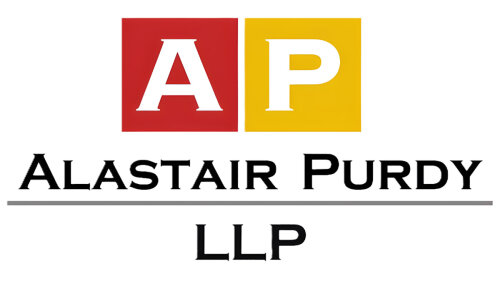Best Hiring & Firing Lawyers in Galway
Share your needs with us, get contacted by law firms.
Free. Takes 2 min.
List of the best lawyers in Galway, Ireland
About Hiring & Firing Law in Galway, Ireland
Hiring and firing in Galway, as in the rest of Ireland, is governed by a robust framework of employment laws that ensure fair treatment for both employers and employees. These laws encompass various aspects, including employment contracts, workplace rights, termination procedures, and more. Galway, as a vibrant city in the west of Ireland, follows national legislation but also benefits from local legal expertise and resources that can assist both employers and employees in navigating these laws effectively.
Why You May Need a Lawyer
Legal advice may be necessary in several situations related to hiring and firing in Galway. Employers might seek legal counsel to ensure compliance with employment law when drafting contracts, conducting disciplinary procedures, or handling dismissals. Similarly, employees may need legal assistance if they feel they have been unfairly dismissed, discriminated against, or if they have contractual disputes. A lawyer specializing in employment law can provide guidance, help resolve disputes, and represent individuals or companies in legal proceedings.
Local Laws Overview
The landscape of hiring and firing laws in Galway is shaped by a combination of Irish employment legislation and European Union directives. Key aspects include:
- Employment Contracts: Employers are required to provide written terms of employment within two months of an employee’s start date.
- Unfair Dismissal: Employees who have been with a company for at least a year are protected under the Unfair Dismissals Acts 1977-2015. Dismissals must be justified with valid reasons such as capability, conduct, or redundancy.
- Redundancy: Employees are entitled to certain payments and notices under the Redundancy Payments Acts 1967-2014 if they are let go due to organizational restructuring.
- Discrimination: Under the Employment Equality Acts 1998-2015, discrimination based on gender, age, race, religion, and other characteristics is prohibited in the workplace.
- Minimum Wage and Working Hours: National minimum wage rates and regulations regarding working hours and overtime must be adhered to as outlined in the National Minimum Wage Act 2000 and Organization of Working Time Act 1997, respectively.
Frequently Asked Questions
What constitutes unfair dismissal in Galway?
Unfair dismissal occurs when an employee is terminated without fair reason or without following proper procedures outlined under the Unfair Dismissals Acts. Reasons may include capability, conduct, redundancy, or other substantial grounds proven by the employer.
How much notice must an employer give before terminating employment?
The required notice period depends on the length of service, as dictated by the Minimum Notice and Terms of Employment Act 1973. It ranges from one week for employees with less than two years of service to eight weeks for those with fifteen or more years.
What rights do employees have during redundancy?
Employees are entitled to statutory redundancy payments, a notice period, and time off to look for new employment. Requirements for entitlement include having been in continuous employment for at least two years.
Can an employer fire someone without a written contract?
While it is best practice to have written contracts, employers must still adhere to fair dismissal procedures and provide adequate notice. Verbal agreements are also considered binding, and dismissals must comply with employment laws.
What protections are there against discrimination in hiring?
The Employment Equality Acts prohibit discrimination during the recruitment process based on several grounds, including gender, marital status, race, age, and disability.
Are non-compete clauses enforceable in Galway?
Non-compete clauses must be reasonable in scope and duration and protect legitimate business interests to be enforceable. Unreasonably restrictive clauses may be challenged in court.
What is the current minimum wage in Ireland?
As of the latest update, the minimum wage in Ireland is set by the National Minimum Wage Act 2000 and is adjusted periodically. Employers must comply with these regulations to ensure fair pay.
When is a probation period considered legal?
Probation periods, typically up to six months, allow for an assessment of an employee's suitability. They must be explicitly stated in the employment contract, with possible extensions not exceeding a total of eleven months.
What should employees do if they face unfair treatment at work?
Employees should initially attempt to resolve issues informally with their employer or HR department. If unresolved, they may contact a solicitor or bring a complaint to the Workplace Relations Commission.
How is sick leave managed in the workplace?
While Irish law doesn't mandate sick pay, many employers offer sick leave benefits. Employees should check their contracts for specific terms, and statutory leave entitlements must be honored regarding certified illnesses.
Additional Resources
Here are some resources and organizations that can provide additional guidance and support:
- Workplace Relations Commission (WRC): Provides mediation and advisory services for workplace disputes.
- Citizens Information: Offers detailed guidance on employee rights and employer obligations.
- Local Solicitors and Law Firms: Specialized legal professionals in Galway can provide personalized advice and representation.
- Galway Chamber of Commerce: Offers resources and networking opportunities for businesses navigating employment law.
Next Steps
If you require legal assistance in matters of hiring and firing, consider the following steps:
- Identify the specific issues or questions you have regarding your employment situation.
- Gather any relevant documents, such as employment contracts, emails, and records of any communications.
- Contact a qualified employment lawyer in Galway for an initial consultation.
- If necessary, file a complaint with the Workplace Relations Commission or seek mediation services.
- Stay informed about your rights and obligations through trusted resources and ongoing legal advice.
Lawzana helps you find the best lawyers and law firms in Galway through a curated and pre-screened list of qualified legal professionals. Our platform offers rankings and detailed profiles of attorneys and law firms, allowing you to compare based on practice areas, including Hiring & Firing, experience, and client feedback.
Each profile includes a description of the firm's areas of practice, client reviews, team members and partners, year of establishment, spoken languages, office locations, contact information, social media presence, and any published articles or resources. Most firms on our platform speak English and are experienced in both local and international legal matters.
Get a quote from top-rated law firms in Galway, Ireland — quickly, securely, and without unnecessary hassle.
Disclaimer:
The information provided on this page is for general informational purposes only and does not constitute legal advice. While we strive to ensure the accuracy and relevance of the content, legal information may change over time, and interpretations of the law can vary. You should always consult with a qualified legal professional for advice specific to your situation.
We disclaim all liability for actions taken or not taken based on the content of this page. If you believe any information is incorrect or outdated, please contact us, and we will review and update it where appropriate.














